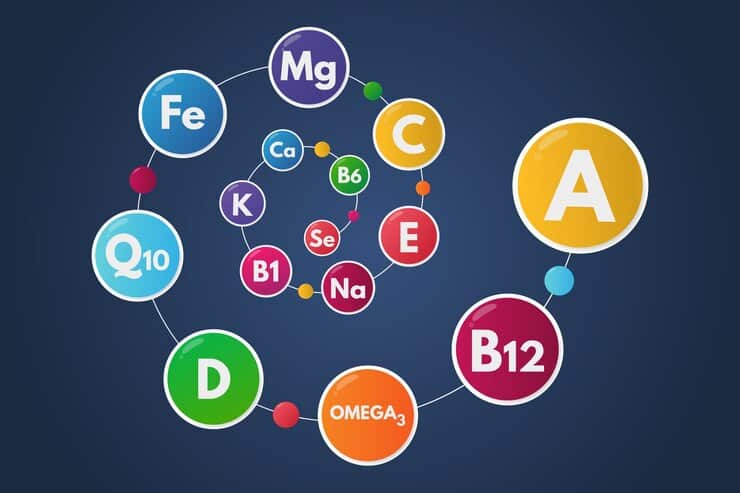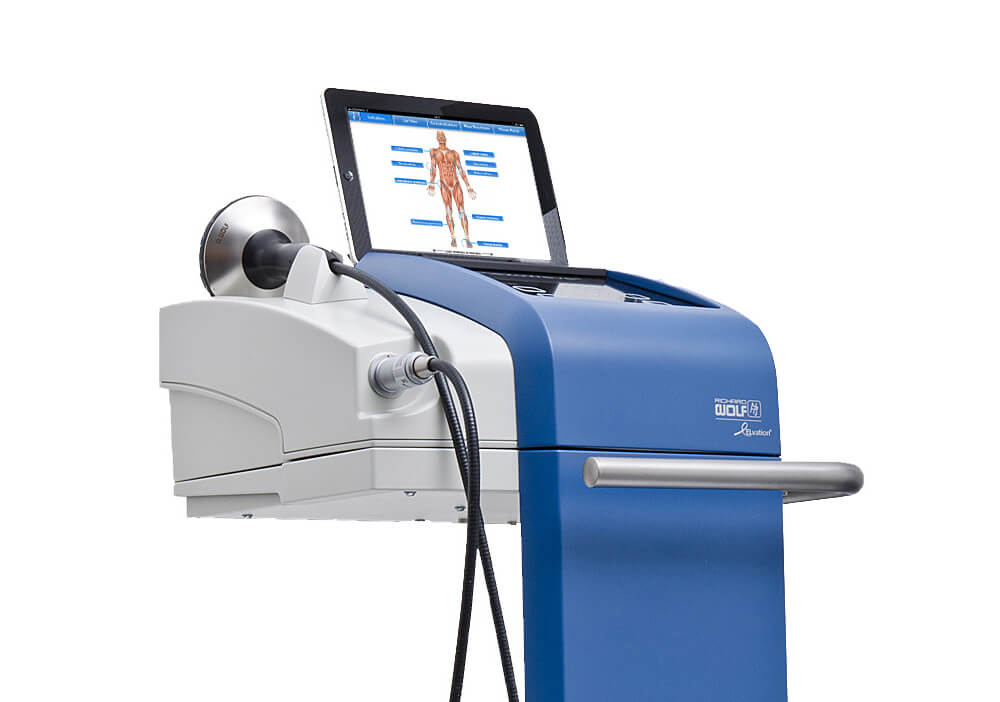

In a recent study, it was found that many Americans suffer from common vitamin deficiencies due to factors such as poor diet, lack of exercise, stress and insufficient outdoor time. These deficiencies can significantly impact your overall health and well-being. Here’s a look at the most common deficiencies, their causes, and how you can prevent them.

Why It Matters: Vitamin D is crucial for bone health, immune function, and mood regulation. Deficiency can lead to conditions like rickets in children, osteomalacia in adults, and increased susceptibility to infections, autoimmune diseases, inflammation and more.
Sources: Vitamin D can be synthesized by the skin when exposed to sunlight, but most of us are wearing sunblock and spending time indoors. Dietary sources include fish and fish oils, eggs, shiitake mushrooms, liver, and fortified foods like orange juice and milk.
Prevention Tips: Ensure adequate sun exposure (about 10-30 minutes several times a week, depending on skin type and geographical location), include vitamin D-rich foods in your diet, and consider taking supplements of D3, especially during winter months or if you have limited sun exposure.
Health Status and Serum Levels:

Why It Matters: Vitamin B6 is essential for brain development, immune function, and the synthesis of neurotransmitters. Deficiency can lead to anemia, depression, confusion, and weakened immune response.
Sources: Vitamin B6 is found in fish, beef liver, potatoes, chickpeas, bananas, and fortified cereals.
Prevention Tips: Maintain a balanced diet rich in B6, especially if you are elderly, malnourished, or consume alcohol regularly, as these factors can increase the risk of deficiency.
Recommended Daily Allowances (RDA):

Why It Matters: Vitamin B12 is vital for nerve function, the production of DNA and red blood cells, and overall brain health. Deficiency can result in anemia, neurological disorders, and cognitive impairments.
Sources: Animal products like dairy, meat, fortified foods (be careful of the source), plant-based milks, and nutritional yeast.
Prevention Tips: Vegans, vegetarians, and the elderly should consider B12 supplements. Be careful of your form of B12. Cyanocobalamin is the synthetic form of B12 and will block the receptor site for natural methylcobalamin to be utilized in the body.
Recommended Daily Allowances (RDA):
Why It Matters: Zinc is essential for immune function, wound healing, DNA synthesis, and cellular metabolism. Deficiency can cause growth retardation, hair loss, diarrhea, and delayed sexual maturation.
Sources: Zinc is abundant in seafood, meat, dairy products, nuts, seeds, and legumes.
Prevention Tips: Include zinc-rich foods in your diet and be mindful of factors that impair absorption, such as high intake of fiber or phytates found in plant-based foods. Avoid excessive zinc supplementation which can interfere with copper absorption.
Recommended Daily Allowances (RDA):

Why It Matters: Vitamin A is crucial for vision, immune function, and skin health. Deficiency can lead to vision problems, particularly night blindness, and a weakened immune system.
Sources: Rich sources of vitamin A include liver, fish, eggs, dairy products, and colorful fruits and certain vegetables like carrots and butternut squash. It is important to note that preformed vitamin A (retinol) comes from animal sources, while provitamin A (beta-carotene) comes from plant sources.
Prevention Tips: Regularly consume a variety of vitamin A-rich foods to ensure adequate intake. Be cautious with supplements, as excessive intake of preformed vitamin A can be toxic.
Recommended Daily Allowances (RDA):
Why It Matters: Iron is essential for the production of hemoglobin, which carries oxygen in the blood. Deficiency can lead to anemia, causing fatigue, weakness, air hunger and decreased immune function. Iron is a common deficiency in women due to their menstrual cycle. Leaky gut and digestive issues also can also cause a lack of absorption.
Sources: Iron-rich foods include red meat, poultry, fish, beans, lentils, and fortified cereals. Heme iron from animal sources is better absorbed than non-heme iron from plant sources.
Prevention Tips: Combine iron-rich foods with vitamin C-rich foods to enhance absorption, and be particularly mindful of iron intake if you are a woman of childbearing age or have conditions that cause blood loss. Iron supplements can cause digestive issues and should be taken under medical supervision.
Recommended Daily Allowances (RDA):
Why It Matters: Iodine is crucial for thyroid function, which regulates metabolism and growth. Deficiency can lead to goiter, hypothyroidism, and developmental issues in children.
Sources: Iodine is found in iodized salt, seafood, dairy products, and some grains. Seaweed is an excellent natural source of iodine.
Prevention Tips: Consume iodine-rich foods, particularly if you are pregnant or breastfeeding, as these stages require higher iodine levels for proper fetal development. Be mindful to avoid excessive iodine intake, as it can also lead to thyroid problems.

Why It Matters: Magnesium supports muscle and nerve function, blood sugar control, and bone and heart health. Deficiency can lead to muscle cramps, mental health issues such as anxiety and depression, and cardiovascular problems.
Sources: Magnesium is found in green leafy vegetables, nuts, seeds, whole grains, and legumes.
Prevention Tips: Include a variety of magnesium-rich foods in your diet to ensure adequate intake. Be aware that certain medications, such as diuretics and proton pump inhibitors, can affect magnesium levels. Excessive amounts of stress and caffeine can also deplete your magnesium levels.
Recommended Daily Allowances (RDA):
Why It Matters: Calcium is essential for building and maintaining strong bones and teeth. It is also important for vascular contraction, vasodilation, muscle function, and nerve transmission. Deficiency can lead to osteoporosis, dental problems, and in severe cases, rickets.
Sources: Dairy products, milk, cheese and yogurt, fortified plant milks, leafy greens, and certain fish like sardines and salmon with bones.
Prevention Tips: Ensure adequate calcium intake through a diet rich in calcium or supplements if necessary, particularly if you have dietary restrictions or health conditions that affect calcium absorption. Vitamin D is essential for calcium absorption, so maintaining adequate vitamin D levels is also important.
Recommended Daily Allowances (RDA):
At Health in Motion Chiropractic we take a full body approach to your health concerns. Maintaining a balanced diet rich in these essential vitamins and minerals is key to preventing common vitamin deficiencies and promoting overall health. If you find it challenging to meet your nutritional needs through food alone, dietary supplements can be an effective solution. The source of your supplements is critical as well and if you want to utilize the supplements that you are taking you must be mindful of the quality. Always consult with a healthcare provider before starting any new supplement regimen to ensure it is appropriate for your specific health needs. By addressing these common vitamin deficiencies, you can improve your energy levels, immune function, and overall well-being. Additionally, for those looking for a quick and convenient way to boost their vitamin intake, vitamin shots may be a helpful option to consider. Remember, taking care of your body is an investment in your future health and well-being. Prioritize your nutrition and supplement needs to maintain a healthy and vibrant lifestyle. Consult with us today to learn more!



Call us today at (386)-320-0325 for relief of your whiplash symptoms or for assistance in reaching optimal health.
